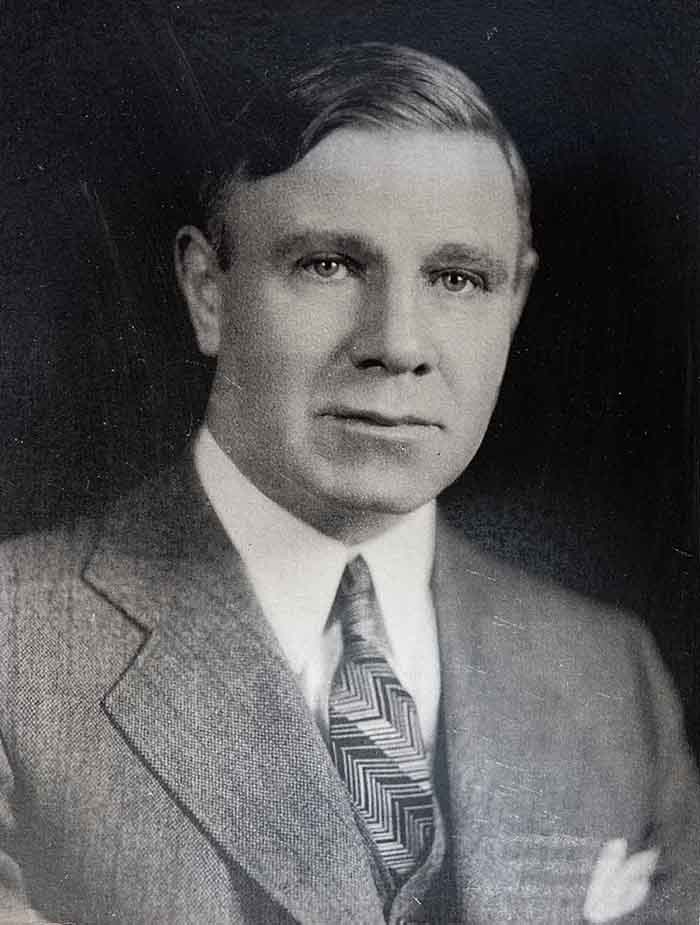Chapter 2 - A BRIEF HISTORY OF THE McINTYRE RANCH
By Wm. H. “Billy” McIntyre, Jr. – Monday, August 18, 1947

I have been asked at various times and by various people to write a history of the McIntyre Ranch at Magrath, Alberta, but have never been able to make myself sit down and really put the story in written form. This time I will really try to do the job, so here goes.
I cannot very well give a complete story of the McIntyre Ranch from the beginning without starting with a short life history of its founder, who was my father, the late William H McIntyre of Salt Lake City, Utah. He was born in Grimes County, Texas, about 40 miles north of the present city of Houston, Texas, in the year 1848. His father was William McIntyre of Scotch-Irish descent. And who never left a photograph of himself or an account of his parentage. Father often remarked that he would give a lot to have a picture of his father. He was a farmer who owned Negro slaves and was an active land trader. When the United States-Mexican War broke out, he enlisted in the United States Army as a soldier and fought during the war with the Texas units. At the close of the Mexican War, soldiers were given script which entitled them to take up land. He used all of his script for acquiring land and also traded horses and mules to other soldiers for their script, so that at his death, which was one year after my father was born, he had a large tract of fine fertile land north of Houston.
William McIntyre left three sons – the eldest being Robert, the second Samuel Houston, and the third William Howell. Shortly after his death his widow married again, her second husband being a musician named Moody. Mr. Moody became converted to Mormonism and moved his newly acquired family to Salt Lake City, Utah, which city was then in its infancy. The three boys received a very meagre education in the Salt Lake City schools and then went to work cutting logs out of the mountains on contract for the United States Government for use at Camp Douglas, which later became Fort Douglas at Salt Lake City. They also worked driving scrapers for moving dirt for the building of the Union Pacific Railroad. Mr. Moody and his family were then sent to St. George, Utah, by Brigham Young on what was known as the Cotton Mission, the purpose of which was to grow cotton in the semi-tropical climate of southern Utah.
William McIntyre left three sons – the eldest being Robert, the second Samuel Houston, and the third William Howell. Shortly after his death his widow married again, her second husband being a musician named Moody. Mr. Moody became converted to Mormonism and moved his newly acquired family to Salt Lake City, Utah, which city was then in its infancy. The three boys received a very meagre education in the Salt Lake City schools and then went to work cutting logs out of the mountains on contract for the United States Government for use at Camp Douglas, which later became Fort Douglas at Salt Lake City. They also worked driving scrapers for moving dirt for the building of the Union Pacific Railroad. Mr. Moody and his family were then sent to St. George, Utah, by Brigham Young on what was known as the Cotton Mission, the purpose of which was to grow cotton in the semi-tropical climate of southern Utah.
After settling in St. George, Utah, the oldest brother, Robert, went to work for a rancher named Whitemore. One winter while they were gathering cattle in the northern part of Arizona, Navajo Indians surrounded them, killing both Whitemore and Robert McIntyre and taking the cattle. The remaining brothers, William H. and Samuel H., then took up freighting with mule teams from California into Salt Lake City and occasionally northwards into the booming mining town of Virginia City, Montana. In the winter of 1919, my father, William H. McIntyre, and my mother were spending the winter at the Virginia Hotel at Long Beach, California. During their stay there I visited them for about a week and while there my father endeavoured to show me the approximate spot where he used to turn his mules out for pasture during his early freighting days.
Along about 1870, William H. and his brother Samuel went back to Texas for the purpose of selling the land which their father had left them. An uncle, Robert McIntyre, had kept the taxes on this land paid, hoping that his nephews would some day come back and live on it. During this time the Civil War had been fought and all the Negro slaves have been freed. One old ex-slave hearing that “his boys’ had come back to Texas, walked a distance of 50 miles in order to see them. William and Samuel sold the tract of land and were paid for it in gold coins of many different countries – Spanish, Portuguese, Mexican, U. S. and perhaps those of several other countries. The purchase of this land had been saving his money for many years in a big raw-hide trunk and so it took considerable counting and figuring before the deal was finally completed. After the sale of this land, the two brothers, William and Samuel, started buying cattle in Texas.
